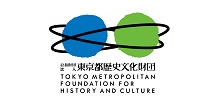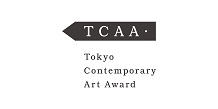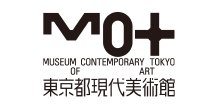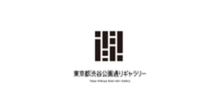FUJIKURA Dai
FUJIKURA Dai
update: 2017.3.1
Profile
Dai Fujikura was born in Osaka, Japan, in 1977. He came to London at the age of 15, and studied at Trinity College of Music with Daryl Runswick, the Royal College of Music with Edwin Roxburgh, supported by the PRS, and King¹s College London with George Benjamin. Fujikura gained international recognition by winning a number of prestigious prizes: First Prize in the Serocki International Composers'Competition (1998); the Huddersfield Contemporary Music Festival Young Composers'Award (1998); the Royal Philharmonic Society's Composition Prize (2004); Internationaler Wiener Composition Prize (the Claudio Abbado Composition Award) (2005); the Schleswig-Holstein Music Festival's Paul Hindemith Prize (2007); Special Prize from the Giga-Hertz-Award 2008 and, most recently OTAKA prize for "secret forest" (2009), Akutagawa Award for "...as I am..." (2009). In 2005, "Vast Ocean" for trombone, orchestra and live electronics, was performed by the Hilversum Radio Orchestra and Experimentalstudio Freiburg, in the Donaueschingen Music Days festival, conducted by Peter Eötvös. In 2009 "Phantom Splinter" for Wind trio (musikFabrik) and electronics was also commissioned and premiered there. Also in 2005, "Stream State" for orchestra, was commissioned and performed in Lucerne Festival, conducted by Pierre Boulez. This work immediately had further performances in Germany, Austria, Italy and Japan during 2006. Fujikura made his BBC Proms debut with "Crushing Twister", August 2006, a BBC commission for the BBC Concert Orchestra, conducted by Charles Hazlewood. In the same year, his music was performed at the Chicago Symphony Orchestra's "Music Now" series. Many of the world's leading contemporary ensembles and orchestras have commissioned and performed Fujikura's works including Ensemble Modern, The Asko/Schönberg Ensemble, London Sinfonietta, Nieuw Ensemble, Ensemble Recherche, Klangforum Wien, OKEANOS, Ensemble Intercontemporain, I.C.E., BIT20, Vienna Radio Orchestra, BBC Symphony Orchestra, Philharmonia (UK), Berliner Sinfonie-Orchester, Melbourne Symphony Orchestra and Bavarian Radio Symphony Orchestra.In 2007, "Swarming Essence" for orchestra and electronics was commissioned and performed by Orchestre Philharmonique de Radio France and IRCAM, and in 2009 "prism spectra" for viola and electronics was also created in IRCAM, premiered in Museum d'Orsay. In 2008 April, one of Fujikura's largest works to date, "...as I am..." for mezzo soprano and large ensemble was premiered by Ensemble Intercontemporain and Lore Lixenberg, conducted by Susanna Mälkki in Cite de la Musique. In 2009 February, Fujikura's Piano Concerto, "AMPERE" for Noriko Ogawa and the Philharmonia Orchestra, conducted by Martyn Brabbins (co-commissioned by Nagoya Philharmonic, Thierry Fischer - conductor) was premiered in London and Nagoya. Future commissions include: a string quartet for Arditti String Quartet (commissioned by the Wigmore Hall), a recorder concerto for Jeremias Schwarzer, a Double Bass Concerto for the London Sinfonietta, an ensemble work for I.C.E., a solo piano work for Sunwook Kim (BBC commission), 2 works for solo violin (one is for Barbara Lüneburg and the other work is for Hae-Sun Kang), "Mirrors" for 6 cellos for Chicago Symphony Orchestra's MusicNow series and projects with David Sylvian
About works / performance
《Mirrors》
The Chicago Symphony Orchestra commissioned me to write a chamber work for any six players from the orchestra. As the CSO is one of the best orchestras in the world, I wanted to differentiate from a usual work for chamber ensemble, deciding to write for a whole section instead. It was extremely hard to decide which section to write for, as each one is exemplary. I decided to start asking my friends, as I simply couldn't make up my mind. This led to even more confusion, as each had a different opinion! In the end, I chose to write for the cello section, if only because I have a very good friend who plays in it.
Since composing a piano concerto in 2008, I have been trying to sort out the relationship between percussive and sustained sounds. I found an acceptable solution for my piano concerto and wanted to develop this further in the work. In the opening you hear rather simple and clear pizzicato and arco (played by the bow) figures which alternate as if the sustained arco sound was the reverse of the pizz.
This reverse action is like a mirror, but also harmonically it is like a mirror. Hence the title of the piece. Sometimes this mirror is distorted, as if the musical material had entered a house of mirrors in a fairground. This concept runs throughout the piece horizontally and vertically.
I was worried that when the pizzicato sections were written at a fast tempo, they might have been quite uncomfortable for cellists to play. However, this was the effect I really wanted, so I had to try it out with several cellists. Luckily, when the Chicago Symphony was last visiting London -where I live and compose- I barged into the hotel room of my cellist friend and tried many things out!
After I finished the piece, I reflected on touring and travelling, and realised that the last time I visited Chicago - to attend the concert of "music now" - I visited and saw Anish Kapoor's sculpture Cloud Gate. The visual affect of this work is very similar to what I had in mind in Mirrors. Perhaps fond memories of my last visit to Chicago had been at the back of my mind.







